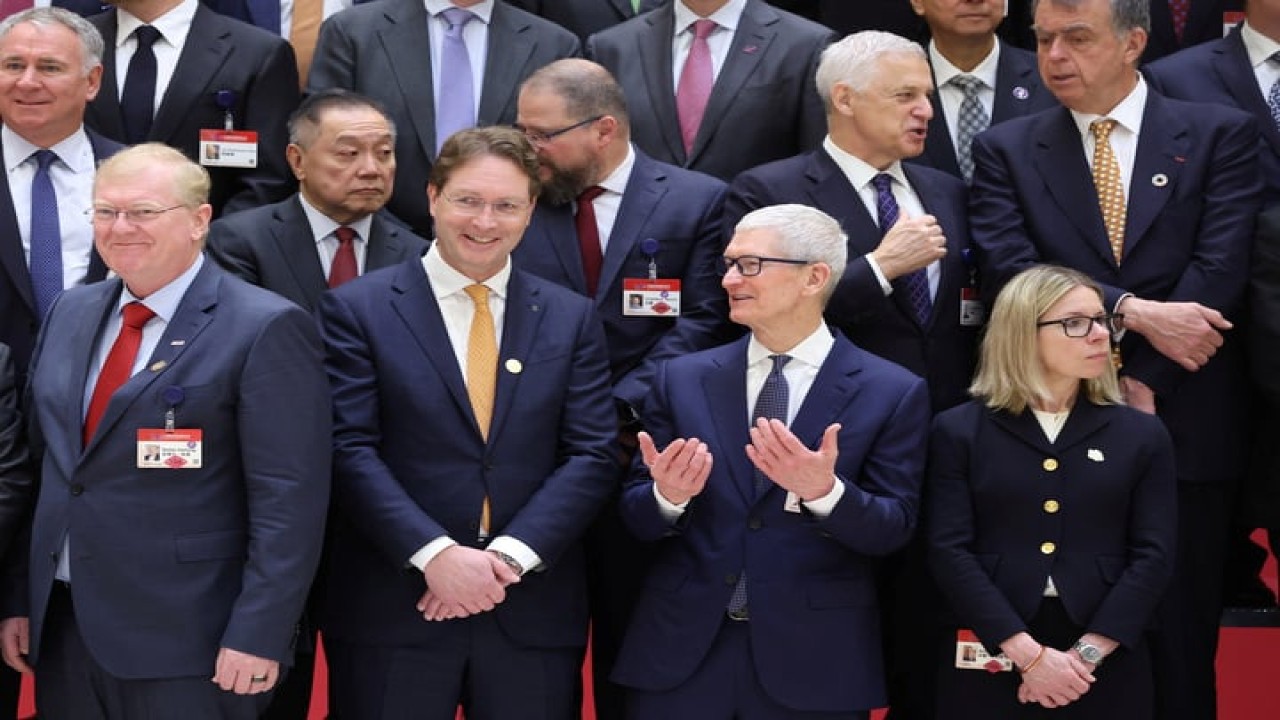Apple Announces $99.3 Million Clean Energy Fund in China During CEO Tim Cook’s Visit to Beijing
Apple CEO Tim Cook speaks with delegates before the opening ceremony of the China Development Forum. (Source: Reuters)
Previously, Apple had implemented various policies to promote the use of clean energy in its global supply chain and manufacturing operations. In April 2023, the company announced that over 300 suppliers had committed to using 100% renewable energy in the production of Apple products, covering more than 90% of the company's direct manufacturing costs. This initiative is a key step toward Apple's goal of achieving carbon neutrality for all its products by 2030.
In Vietnam, Apple is collaborating with its partners to help them transition to using clean energy and recycled materials. According to Lisa Jackson, Apple's Vice President of Environment, Policy, and Social Initiatives, this effort not only reduces carbon emissions but also enhances the sustainability of the global supply chain.
Beyond renewable energy, Apple is also increasing its use of recycled materials, which helps conserve energy and water compared to traditional manufacturing processes. Since 2023, 22% of the total weight of Apple products shipped globally has been made from recycled materials.
Meanwhile, China is accelerating its green transition with significant progress. As of July 2024, the country had installed 1,200 gigawatts of solar and wind power capacity, surpassing its target six years ahead of schedule. To support its renewable energy strategy, China plans to invest approximately $800 billion by 2030 to modernize its power grid, aiming to peak carbon emissions by 2030 and achieve carbon neutrality by 2060.








Comments (0)